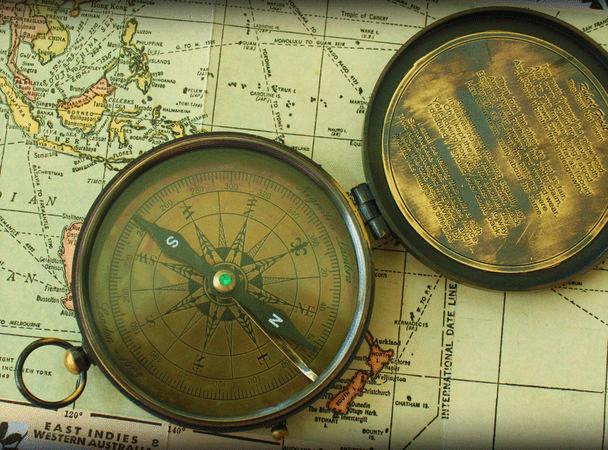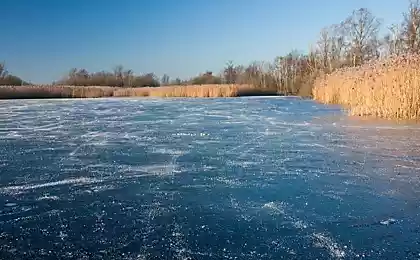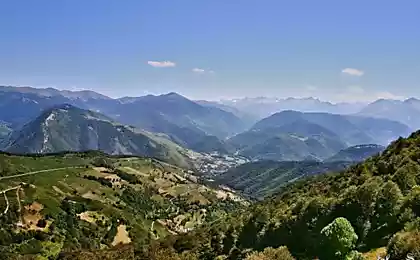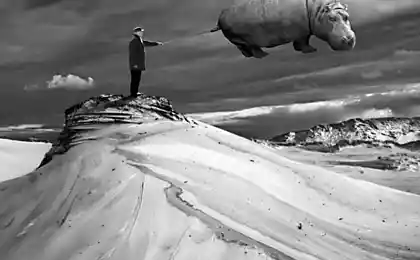399
8 rules that must be followed in order not to spoil the campaign
The laws of survival in the wild everyone should know who wants to come back from a trip alive and well. 1. Always carry a flashlight and knife
Even if you had left the camp five minutes. Was observing the bird, took a few steps back and before you know it, the sun had already set behind the horizon, and in which the left side of the saving tent, is unclear.
2. Don't put the tent near the water
It happens that the river level rises overnight, and the camp is washed away. Around the tent also must not be dry trees that fall on my head in strong winds. And don't put the tent on animal trails, which, for example, animals run regularly to drink. I see that the pond stretches a strip of crumpled grass — choose another place. Otherwise it is likely to face nose to nose, for example, with a moose.
3. Not a fire hazard
Fire pit dig a hole a little wider and plant a fire in her. Thus, you will get the protection from the wind and ensure that the flames did not spread to the nearest Bush.

Don't make these guys work once again — be careful with fire in the woods.4. Avoid carrion
Don't stay in places where animals are having lunch. For example, a bunch of fish scraps on the mountain of the Kamchatka river says that there's table bear.
5. Look for dry firewood
Lying on the earth logs, as a rule, already damp. Break dry branches, looking to often stuck on the weight of the debris, etc. On the trees at the bottom of the barrel usually stick with small dried twigs is ideal for kindling. Hikers call them "gunpowder".
6. Grab a paper map and compass
The battery sits down quickly, and the forest is not a city with outlets in every cafe. Paper topographic map of the area where you plan to go, we always come to the rescue.

7. Do not eat, do not know
If you're not a nerd, don't experiment with plants and mushrooms. Eat only what you can determine with a probability of 100%. If there is a desire to diversify the diet is to your taste, add a tea fir twig.
8. Be careful where you get your water
Remember what buildings you have seen on the banks of the river, I passed along the way. If it was a farm, do not take water downstream — it will probably be with the manure. published
P. S. And remember, only by changing their consumption — together we change the world! ©
Source: www.nat-geo.ru/travel/351001-8-pravil-kotorye-nuzhno-soblyudat-chtoby-ne-isportit-pokhod/
Even if you had left the camp five minutes. Was observing the bird, took a few steps back and before you know it, the sun had already set behind the horizon, and in which the left side of the saving tent, is unclear.
2. Don't put the tent near the water
It happens that the river level rises overnight, and the camp is washed away. Around the tent also must not be dry trees that fall on my head in strong winds. And don't put the tent on animal trails, which, for example, animals run regularly to drink. I see that the pond stretches a strip of crumpled grass — choose another place. Otherwise it is likely to face nose to nose, for example, with a moose.
3. Not a fire hazard
Fire pit dig a hole a little wider and plant a fire in her. Thus, you will get the protection from the wind and ensure that the flames did not spread to the nearest Bush.

Don't make these guys work once again — be careful with fire in the woods.4. Avoid carrion
Don't stay in places where animals are having lunch. For example, a bunch of fish scraps on the mountain of the Kamchatka river says that there's table bear.
5. Look for dry firewood
Lying on the earth logs, as a rule, already damp. Break dry branches, looking to often stuck on the weight of the debris, etc. On the trees at the bottom of the barrel usually stick with small dried twigs is ideal for kindling. Hikers call them "gunpowder".
6. Grab a paper map and compass
The battery sits down quickly, and the forest is not a city with outlets in every cafe. Paper topographic map of the area where you plan to go, we always come to the rescue.

7. Do not eat, do not know
If you're not a nerd, don't experiment with plants and mushrooms. Eat only what you can determine with a probability of 100%. If there is a desire to diversify the diet is to your taste, add a tea fir twig.
8. Be careful where you get your water
Remember what buildings you have seen on the banks of the river, I passed along the way. If it was a farm, do not take water downstream — it will probably be with the manure. published
P. S. And remember, only by changing their consumption — together we change the world! ©
Source: www.nat-geo.ru/travel/351001-8-pravil-kotorye-nuzhno-soblyudat-chtoby-ne-isportit-pokhod/























